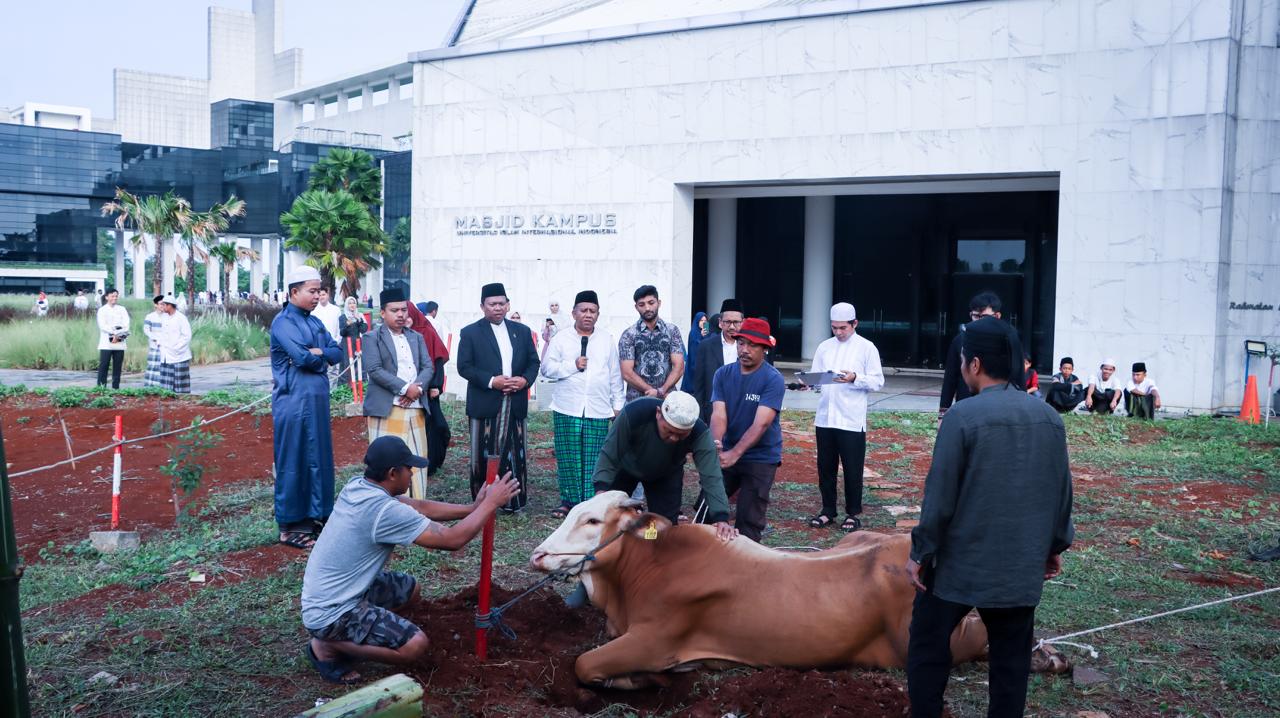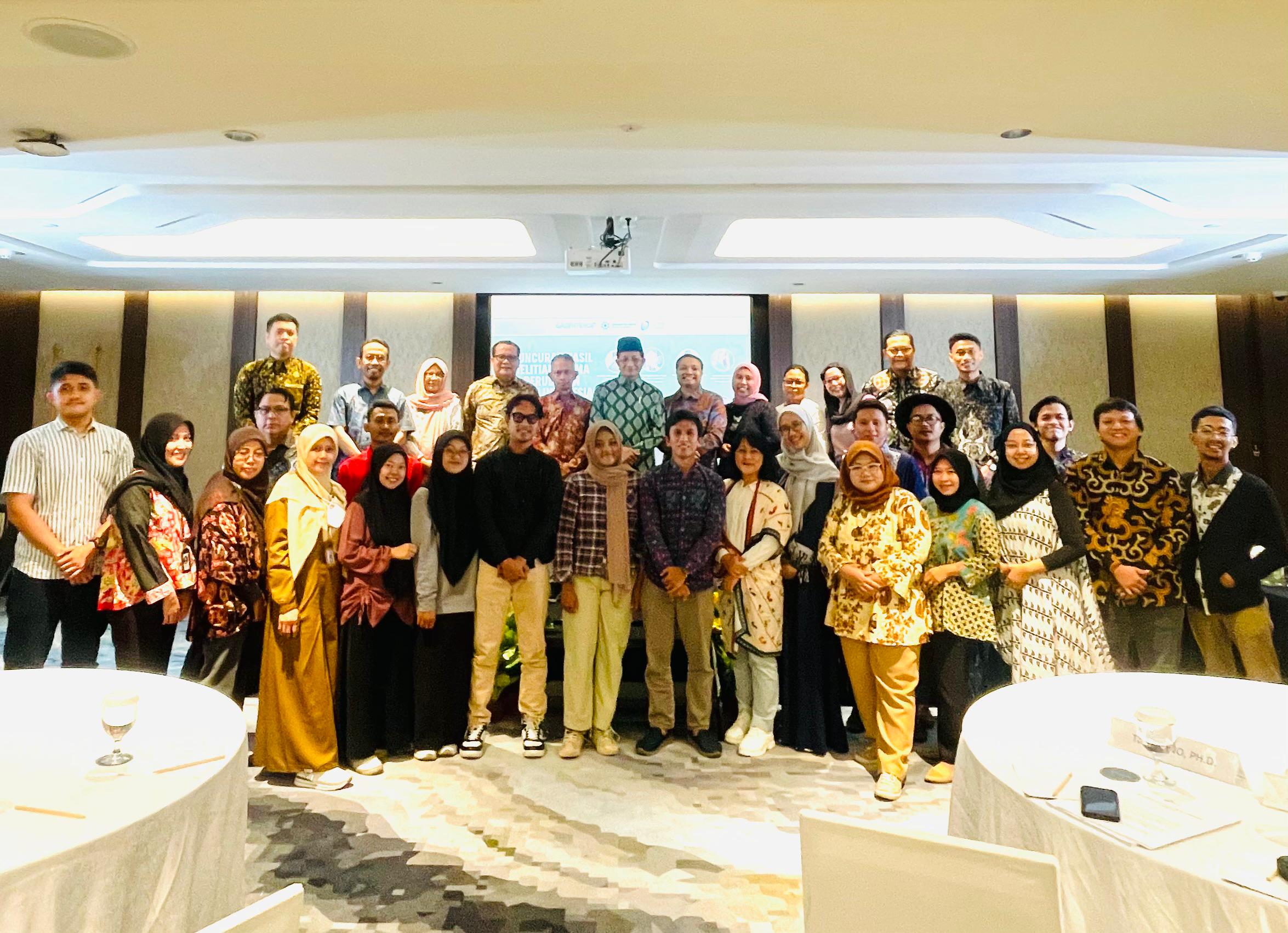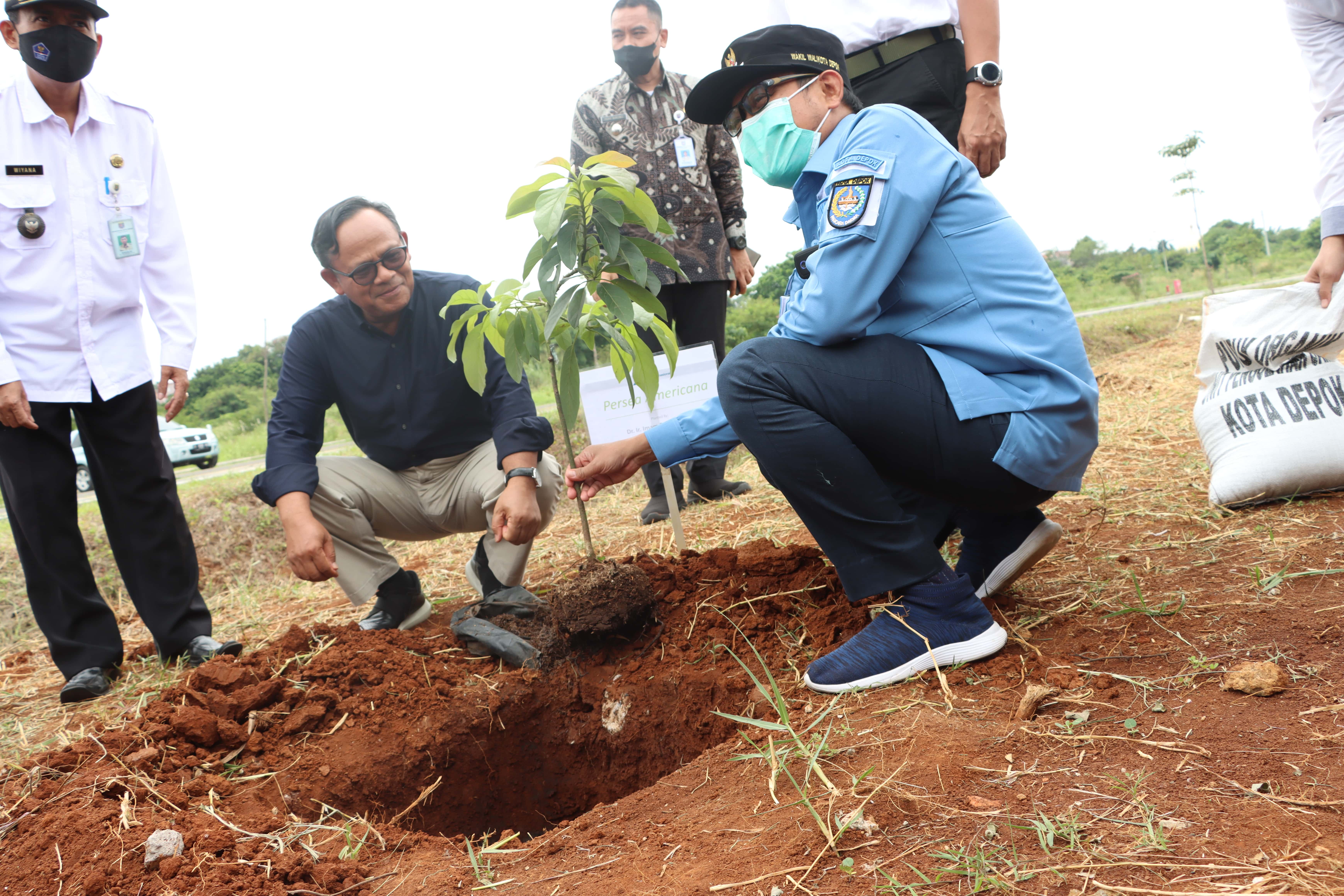Indonesia's Green Qurban Movement
June 16, 2024Contributor: Dadi Darmadi | Editor: Supriyono
 Picture: In 2023, the Eid al-Adha celebration at the Rahmatan Lil 'Alamin mosque, UIII Depok, West Java, featured the ritual slaughter of sacrificial animals in accordance with Islamic law. The event was led by Dr. Chaider S. Bamualim, the University Secretary of UIII, and witnessed by several lecturers and students (UIII/Achmad Jatnika).
Picture: In 2023, the Eid al-Adha celebration at the Rahmatan Lil 'Alamin mosque, UIII Depok, West Java, featured the ritual slaughter of sacrificial animals in accordance with Islamic law. The event was led by Dr. Chaider S. Bamualim, the University Secretary of UIII, and witnessed by several lecturers and students (UIII/Achmad Jatnika).
DEPOK, Indonesia — In the busy streets of Jakarta and the serene rural landscapes of Indonesia, a quiet revolution is taking place. This movement, marked by the annual ritual of Qurban, or the sacrificial slaughter during Eid al-Adha, is being transformed into an emblem of environmental stewardship.
Known as the Green Qurban movement, this initiative among different communities in Indonesia is reimagining a centuries-old religious practice through the lens of sustainability.
Green Sacrifice Initiative
In Bandung, West Java, the Sinergi Foundation stands at the forefront of this movement with its Green Sacrifice program. Launched in 2013, the initiative plants a tree for every sacrificial animal, intertwining the act of worship with a commitment to reforestation.
Read also: Depok City and UIII Committed to Transforming Depok into a Blue and Green City
Over the years, the foundation has planted an impressive 28,866 trees, ranging from jackfruit and mango to durian and rambutan, in local and remote areas.
These fruit-bearing trees not only contribute to environmental greening but also boost the local economy by providing a sustainable source of food and income. In the mountainous regions of Garut, West Java, the program expanded to include the planting of thousands of Jabon trees, aimed at restoring the forest’s water absorption capabilities.
Read also: UIII Student Discusses Muslim Environmentalism and Climate Change Education in Spain Conference
By 2020, the initiative saw the introduction of bamboo seedlings in Selaawi Garut, known for their environmental conservation benefits and their potential to empower local artisans. In 2021, the focus shifted to the coastal areas of Banyuwangi, East Java, where cypress trees were planted to rehabilitate critical land and prevent erosion and tsunamis.
This multifaceted approach highlights the program’s dual commitment to environmental sustainability and community welfare.
Eco-Friendly Endeavors
In Dumai, Pertamina, Indonesia’s state-owned oil and gas corporation, has embraced the Green Qurban ethos by distributing sacrificial meat in baskets made from pineapple plant leaves and bamboo.
Read also: UIII Held Tree Planting Event
The Tunas Makmur Farmers Group, a local partner under Pertamina’s Social and Environmental Responsibility Program, plays a pivotal role in this endeavor. They transform pineapple plant leaves into basket bags, providing an eco-friendly alternative to plastic bags and supporting the local economy.
This initiative is part of Pertamina’s "Beat Plastic Pollution" campaign, which began in 2018 with efforts to reduce plastic waste and promote the use of refillable bottles.
- Dr. Nia Deliana Navigates India-Indonesia Maritime Softpower at Odisha Research Workshop
- UIII Extends Application Deadline for 2025 International Admissions
- UIII Embraces a Green Ramadan: A Month of Worship and Sustainability
- UIII Evaluates Quality Assurance System, Plans For New Study Programs
- Lost at Sea: UIII’s Dr. Nia Deliana Reveals the Silent Crisis of Sea Refugees
- The Qur’an in a Changing World: Prof. Sahiron Syamsuddin’s Visionary Lecture at UIII
- A Shared Mission of UIII and ICRC in Advocating International Humanitarian Law
- Hartford International University for Religion and Peace Signs MOU with UIII for Future Academic Partnership
- Professor Dian Masyita Honored as a Changemaker in Empowering Communities
- Bridging the Archipelago and the Nile


